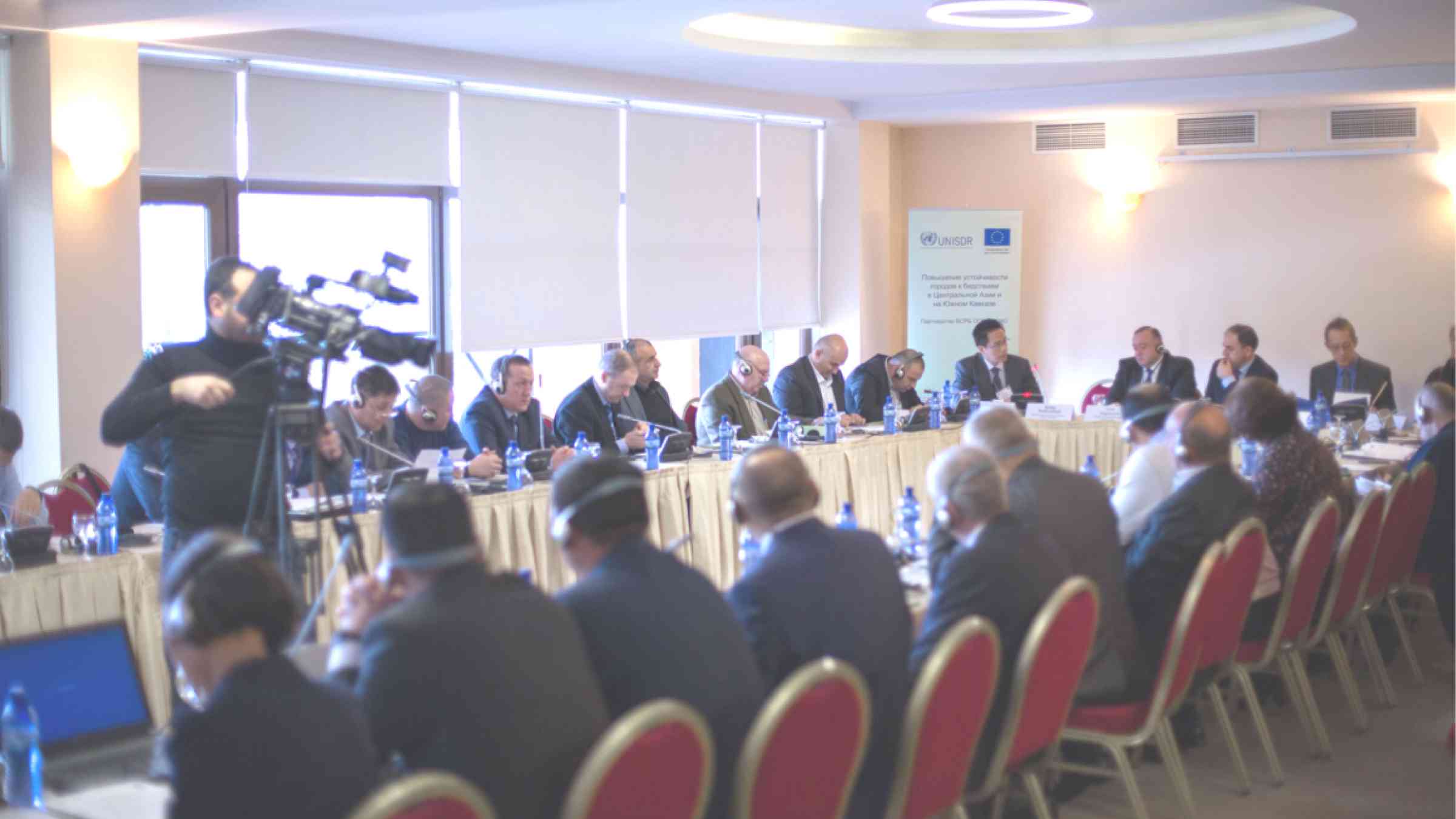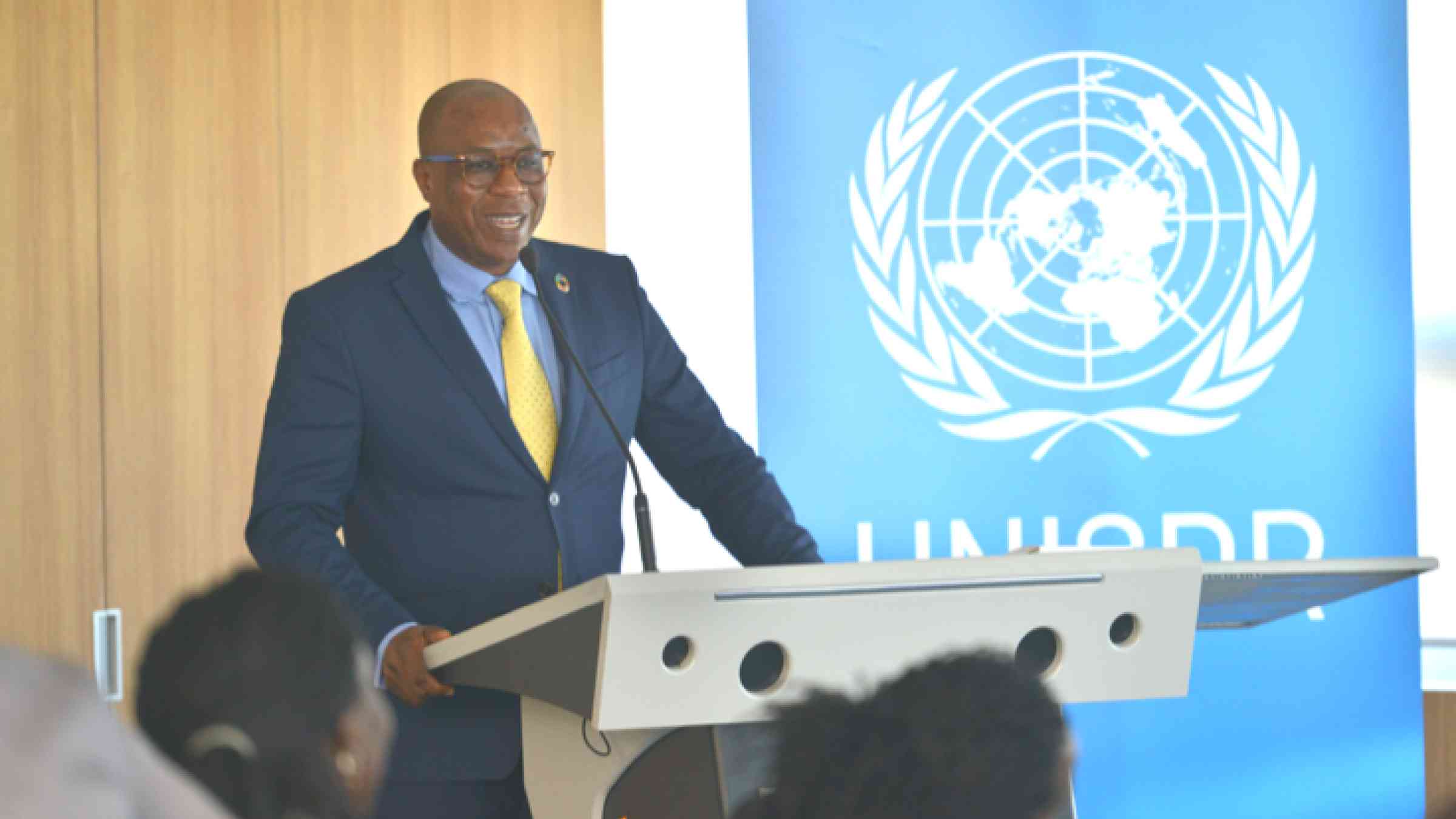Join MCR2030
MCR2030 is a place where cities can find guidance and support to enhance understanding on risk reduction and resilience, to improve strategic planning to reduce risk and build resilience, and to take actions and progress along the resilience roadmap. All cities and local governments are highly encouraged to sign up as MCR2030 member cities. Any national government, national association of municipality, development agency, NGO/CSO, academia and research institution, private sector, UN entity or organization, network or interested entity with specific knowledge and expertise that can support cities to progress along the resilience roadmap are encouraged to join and support local governments in making cities resilient.
How can a city join MCR2030?
You can sign up for MCR2030 online now, at mcr2030dashboard.undrr.org. Please complete the stage assessment, linked below, before you sign up.
Only local governments can participate as MCR2030 cities. National governments can now join as supporting entities, which gives them access to city progress (and the ability to publish services to support cities). To sign up as a national government, please contact your UNDRR focal point for your region for a special code to use in the online sign up form (see Where We Work section for your focal point's contact email).
For the purposes of the MCR2030, “local government” includes all administrative units which are sub national, such as, but not limited to, cities, municipalities, towns, villages, districts, provinces, states, etc. Local governments who join MCR2030 will have access to the MCR2030 dashboard, an online interactive tool, where they can track their progress and access support from participating entities, resiliency resources, tools and services, as well as the ability to connect to thousands of other cities.
In order to join MCR2030, cities should take the stage assessment and get the letter of commitment for their stage signed by their mayor. Previous participants in the MCR Campaign (2010 to 2020) and local governments certified with ISO37123 should take the stage assessment, but are not required to submit a signed letter in order to join.
How will joining MCR2030 help my city thrive and reduce our disaster risk?
Mayors and local governments are both key targets and key drivers in building urban resilient. First, local governments benefit from urban risk reduction, as they are responsible for developing effective policies and tools in helping cities to get ready to meet future risks and to ensure development goals. Urban risk reduction therefore offers opportunities for attracting capital investments, creating fresh business possibilities, delivering greater social equality and providing more balanced ecosystems. Second, local governments hold key positions in successfully integrating disaster resilience into urban development planning processes and daily city operations, as they provide leadership for the well-being of their constituencies. They are also the closest institutional level to citizens and communities. Thus, their participation and leadership are vital to any commitments to implement disaster risk reduction.
MCR2030 will connect thousands of cities and help them share knowledge and resources. Villages, towns, and cities across the world don’t have to wait for a national mandate on disaster risk reduction. Municipalities are leading the way.
You are the right person to lead the change on this problem for your city. MCR2030 is made up of thousands of people like you.
Who are participating entities? How do I get involved if I’m not a local government?
Cities at different stages need different levels of support from experienced entities to progress along the resilience roadmap. Partners have a variety of tools useful for cities at different stages. Any national government entity, national association of municipality, development agency, non-governmental organizations (NGO), civil society organizations (CSO), academia and research institution, private sector organization, UN entity or organization, networks or interested entities with specific knowledge and expertise that can support cities to progress along the resilience roadmap are encouraged to join as MCR2030 participating entities.
Supporting Entities
'Supporting Entities' or Gratis technical expertise-providing entities are non-commercial entities with expertise in specialized areas in the regions that have mandates or activities aligned with MCR2030 and can provide specific gratis technical inputs in fields that support cities to move through the 12 thematic areas in support of MCR2030 and along the resilience roadmap. This includes national government development agencies, non-governmental organizations (NGOs), civil society organizations (CSOs), academia and research institutions, media, as well as national governments, national associations of municipalities, and others. These entities can serve as mentors and advise on technical areas and support the principles and purposes of the MCR2030. In addition to in-kind contributions and commitments, these entities are able to support MCR2030 by hosting regional networking, capacity building and local events, as well as providing direct support and engaging with the cities under the remit of the Regional Coordinating Committees (RCCs)

Specialist Service Providers (SSPs)
Specialist Service Providers (SSPs) are the entities, including but not limited to the private sector, that can offer technical one-to-one advice and support cities in the formulation and implementation the resilience actions. Most SSPs may charge a fee for their services and are expected to be engaged with the cities and local governments through the cities or local government's procurement processes. Such arrangements are to be entered into by the recipient cities and the SSPs directly and are independent of MCR2030. Any entity serving on an advisory body of UNDRR such as the ARISE may join as a SSP but shall not use their affiliation to the UN for any private or commercial gain.
Questions about joining as a Specialist Service Providers? Contact us.

The pandemic has put a magnifying glass on many of the gaps that we knew existed but it is above all challenging a lot of our perceptions and a lot of our models. Many of us thought that we could not stop the economies and we have done it. Many of us thought that there was a part of the planet that was protected from catastrophe and that is no longer the case.
—Emilia Saiz, Secretary-General, United Cities and Local Governments (UCLG), in the Coivd-19: Responding, Re-opening and Recovery Towards Resilience of Cities webinar
Our joint choices now will determine how sustainable, resilient, and inclusive our cities will be tomorrow. We all have a unique opportunity to make the right decisions to create cities that work for all, now and in the future... Urban infrastructure is built to last. If we build without considering the needs of the most vulnerable, we perpetuate inequalities.
—Grete Faremo, Under-Secretary-General and Executive Director of UNOPS at the 2019 C40 World Mayors Summit, Copenhagen, 10 October 2019
We need to make our societies more resilient and ensure a just transition….work together, leaving no one behind.
—António Guterres, UN Secretary-General at the Opening of the General Debate of the 75th Session of the General Assembly, 22 September 2020

